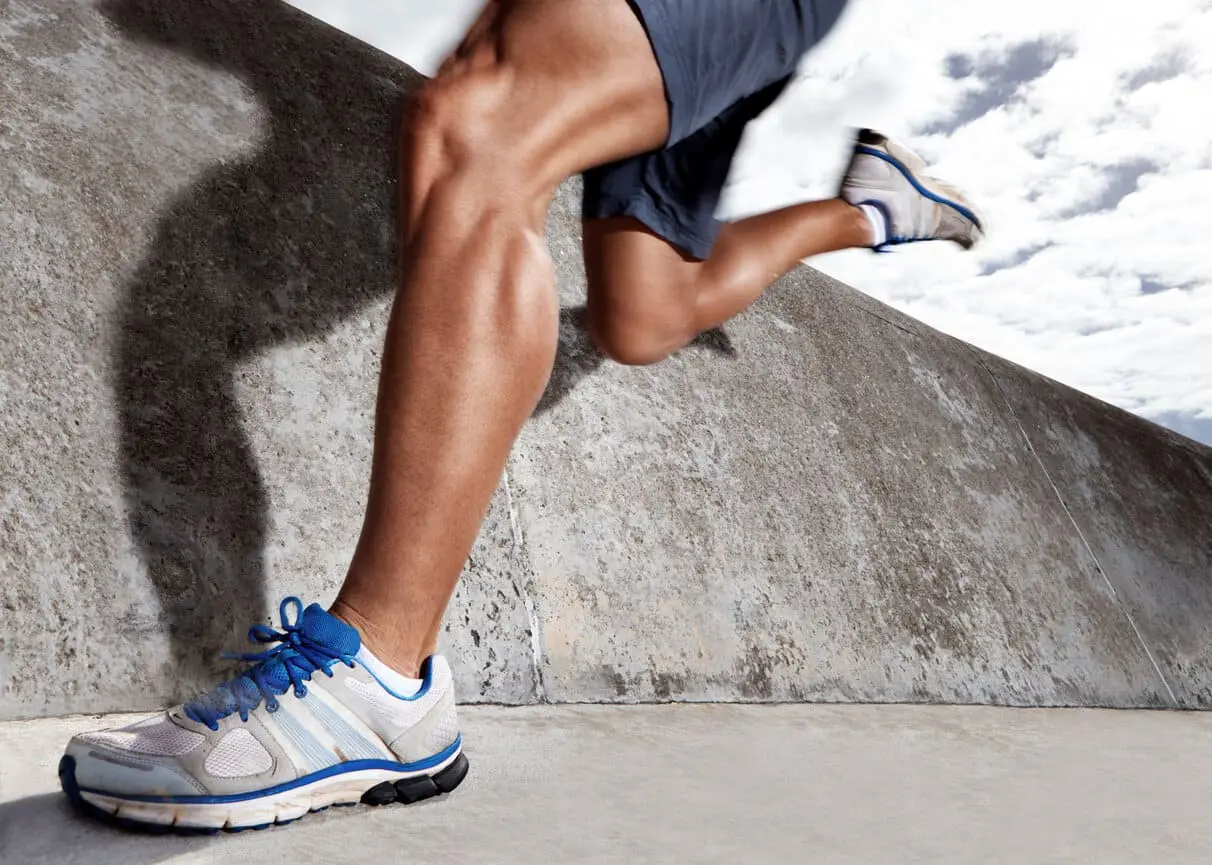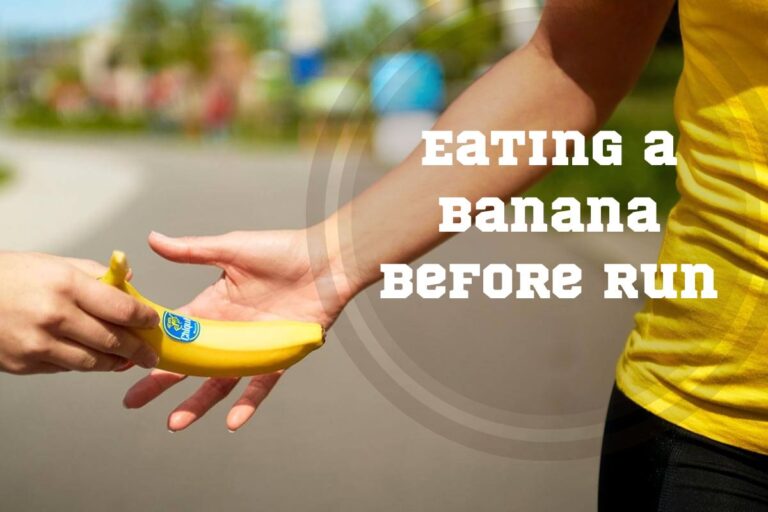Does Running Make You Lose Muscle? Debunking the myth and the effect on muscles
Running is an excellent way to burn calories and stay in good shape. People that want to lose weight can benefit from regular running exercises. However, one common myth is that running will result in a loss of muscle mass. Does running make you lose muscle? Read on as we explain what really happens.
Running could result in loss of muscle. This may occur if the runner has poor nutrition and doesn’t perform regular strength training. The runner will burn more energy than they have stored, resulting in muscle loss. Muscle loss can be avoided with the right balance of exercise and nutrition.

How Running Affects Your Muscles
Running is a great workout. Doctors recommend running on a regular basis to reduce the risk of suffering from heart disease and other health complications. Our readers often ask “does running build muscle?”. Let’s break down what running really does to your muscles.
How you’re running plays a significant role in how it affects your muscles. Aerobic running, like sprinting, is a better choice for running if building muscles is your main goal. This type of running won’t help you build muscles on its own. But, paired with a strength training routine, sprinting can be beneficial for helping with muscle building.
So, does running long distances make you lose muscle? People can lose muscle from long-distance running. This is because the movements trigger the body to increase the level of muscle protein breakdown. Not only does this slow down muscle growth, but it also results in the loss of muscle.
Does Running Make You Lose Muscle? 3 Factors and Cases Involved
We don’t want to turn you off of running. There are a lot of benefits to running long distances. The good news is, most runners that are serious about their health and fitness can run without losing muscle. This is because they’ve prepared their bodies.
Are you wondering “why does running make you lose muscle?” Let’s take a look at some of the cases that could result in a person losing muscle when they run.

1. Running Is Your Only Workout
The average adult needs 150 minutes of moderate physical activity on a weekly basis. A great way to break this down is into 5 separate 30-minute workouts each week. Running for 30 minutes 5 days a week is a great way to stay in good shape, even if you don’t include other workouts. However, it’s not an efficient way to build or maintain your muscles.
To prevent muscle loss, it’s important to add strength training to your workout routine. This can also help you become a better runner. When your muscles are stronger, they can maintain a pace for longer.
2. Not Enough Fuel
Nutrition is just as critical as exercise when it comes to running and muscle loss. You need to make sure that you’re eating a balanced diet along with your regular fitness routine. Don’t skip out on proteins or omega-3 fatty acids. These are essential to helping your body perform.
Think of your body as a car and food as your fuel. If a car runs out of gas, it won’t be able to keep going.
3. Low Body Fat
Running doesn’t just burn body fat. There is a chance that it could burn muscle as well. If your body gets to the point where its body fat percentage is too low, then it will start burning muscles instead.
Subscribe to Our Running Newsletter!
Get free running tips from renowned professional athletes and discounts from top-notch brands.
How To Run Without Losing Muscle
Are you wondering how to run and not lose muscle? You can still run daily or train for a marathon without losing muscle. In order to do this successfully, you need to make sure you’re eating enough protein and make time for strength training.
The best way that you can maintain your muscle mass as a runner is to include full body strength workouts in your weekly routine. Ideally, these should be performed 2 to 3 times a week. During these workouts, you should focus on lifting weights for increasing muscle mass.
Of course, we can’t talk about preserving muscle mass without talking about the importance of protein. When you eat protein, it gets broken down into amino acids in your body. These amino acids are essential for repairing muscles. It’s recommended to eat a protein-rich snack (serving of 20 grams) after running or working out to support muscle recovery.
5 Nutrition Tips for Maintaining Muscles Through Running
How you eat is important when it comes to preserving your muscles as a runner. What you put in your body and when can affect your muscles. Let’s take a look at some important nutrition tips that runners should know.

1. Protein-Rich Snacks After A Workout
Running burns muscle. So, you will need to fuel your muscles after a workout. As we mentioned above, protein is needed to repair muscles after physical activity. Are you wondering what the best post-running snacks are? Here are some of the expert’s picks for the best snacks to eat after running to preserve muscle.
- Protein whey shake;
- Milk (this includes chocolate milk);
- Lean meat (like grilled chicken or tuna);
- Cottage cheese.
Do you follow a plant-based diet? If so, you can still enjoy a nutritious protein-rich snack after a workout. Pea protein powder is an excellent substitution for milk-based products.
2. Carbohydrates Before Distance Running
If you’re running a distance marathon or participating in another type of long-distance running, then you should have a snack beforehand. It’s recommended to eat carbohydrates before running because they help to maintain your body’s glucose levels while exercising. They also help to replace muscle glycogen. It’s recommended to choose a snack with 6 to 10 g of carbohydrates per kg of body weight.
3. Don’t Run While you’re Hungry
Some runners prefer to go out for a sprint first thing in the morning before they have eaten. This is only efficient for people who are trying to lose weight. If you’re trying to maintain or build muscles, then you shouldn’t run on an empty stomach. Even if you prefer to run first thing in the morning, have a small carbohydrate snack to prevent your body from burning muscles.
4. Additional Calories While Training
When you’re training, it’s recommended to eat an increase in calories. This doesn’t mean you need to start eating additional meals. Simply increasing your calorie intake by 10 to 15% can help to prevent burning muscles while running.
5. Multiple Protein Snacks Per Day
This is the part you’ll like to hear. One thing you might be asking is “does running every day make you lose muscle?”. You can prevent muscle loss from running if you eat enough protein on a daily basis. If you run daily, then you should eat multiple protein snacks per day.
Ideally, you should eat a protein snack every 2 to 4 hours. This sounds like a lot, but it’s important to remember you’ll be eating or drinking small portions. It’s essential that your body consumes enough protein each day. But, it’s just as important for your muscles how this protein is spread out. If you have it all too early, your muscles will be worn out later on. However, if the protein is consumed too late, you could burn muscles during activity. So, you need to consume it in portions throughout the day.
Is It Possible To Combine Running And Strength Training
It is 100% possible and highly recommended to combine running and strength training. The myth that you have to do one or the other has been debunked. By adding strength training to your workouts, you can improve the strength of your muscle, which will improve your overall running performance.
But, is running bad for muscle gain? Running isn’t bad for muscle gain as long as you include strength training. By including strength training in your routines just twice a week, you can see tremendous improvements in toning muscles.
It’s possible to combine running and strength training in same-day training. However, when you do this, you should focus on your upper body and avoid strength training workouts on your legs. It’s better to focus on leg strength workouts on the days you do an easy run.
Frequently Asked Questions About Running and Muscle Maintenance
Do you gain muscle from running?
Running on its own is not enough to build muscle. However, running along with strength training can help improve muscle definition.
How can you run without losing muscle?
The two most efficient ways to prevent muscle loss while running are to include strength training and eating enough protein. Strength training helps to build muscles, while protein helps to repair muscles.
Conclusion: Combating Muscle Loss in Running with Preparation and Nutrition
Running could result in muscle loss if you don’t prepare your body. Strength training should be combined into your exercise routine to prevent muscle loss. It’s important that every runner eats a well-balanced diet with plenty of protein-rich snacks. Runners should also eat a carbohydrate snack before a long run. What’s your favorite post-run workout snack? Let us know in the comments below.
Also read:
- Running 8 Miles
- How Much Running Is Too Much
- Good Time for Running a Mile
- How to Run a Mile Without Stopping
- Losing Weight to Run Faster
- 10 Minute Mile
- Running At Night
- Running 50 Miles A Week
- 6 Week 10K Training Plan
References:
- Does Running Build or Break Down Muscle? // Healthline: https://www.healthline.com/nutrition/does-running-build-muscle
- Reduce the risk of suffering from heart disease // Healthline: https://www.healthline.com/health/fitness-exercise/running-everyday
- https://www.cdc.gov/physicalactivity/basics/adults/index.htm
- 150 minutes of moderate physical activity // CDC: https://www.cdc.gov/physicalactivity/basics/adults/index.htm
- 20 grams // NCBI: https://www.ncbi.nlm.nih.gov/pmc/articles/PMC3650697/
- Best snacks to eat after running // Healthline: https://www.healthline.com/nutrition/what-to-eat-after-running#TOC_TITLE_HDR_3
- 6 to 10 g of carbohydrates per kg of body weight // ACSM: https://journals.lww.com/acsm-msse/Fulltext/2009/03000/Nutrition_and_Athletic_Performance.27.aspx
If you have any questions or suggestions, you can contact us via email – [email protected]






